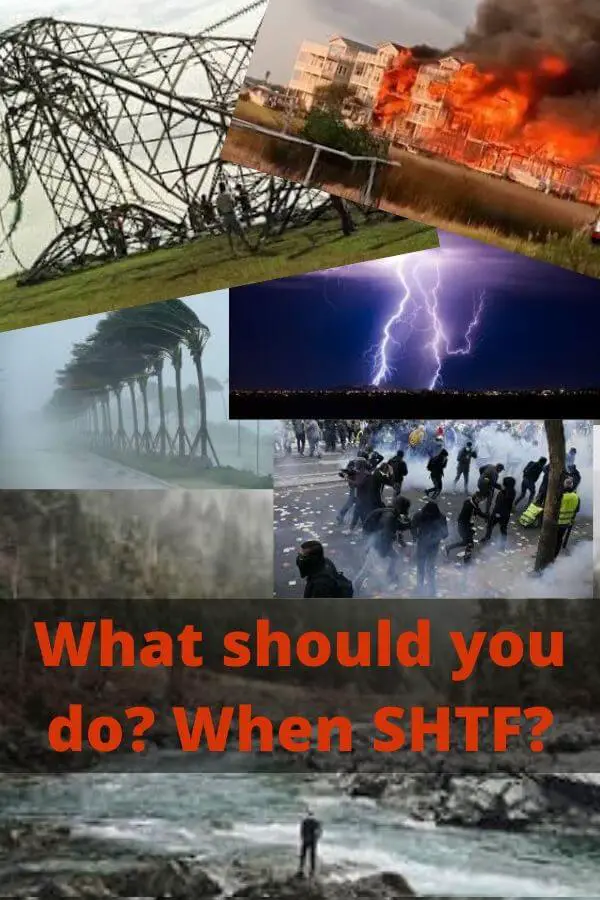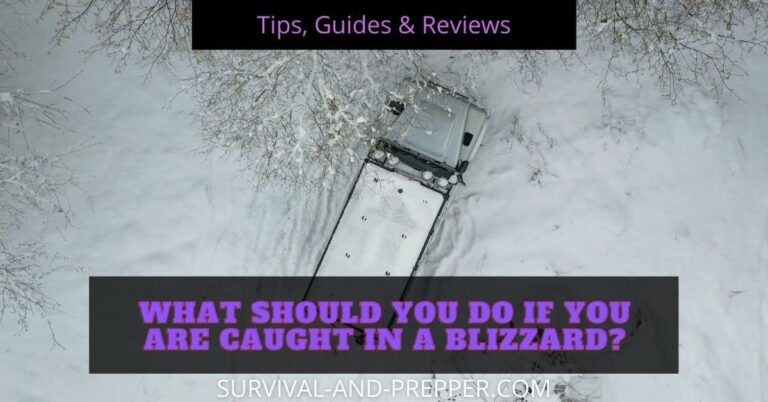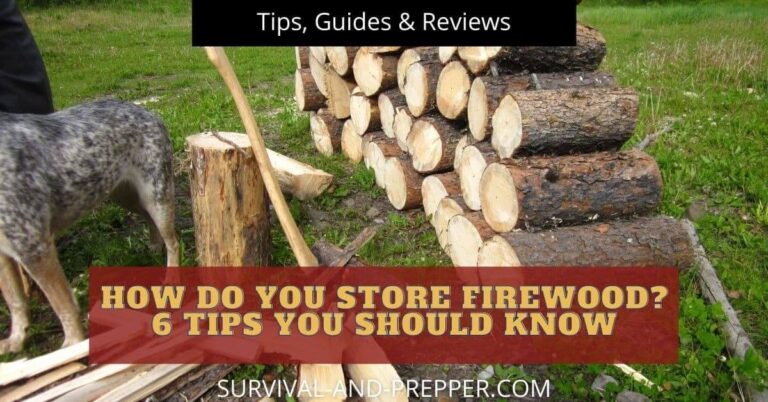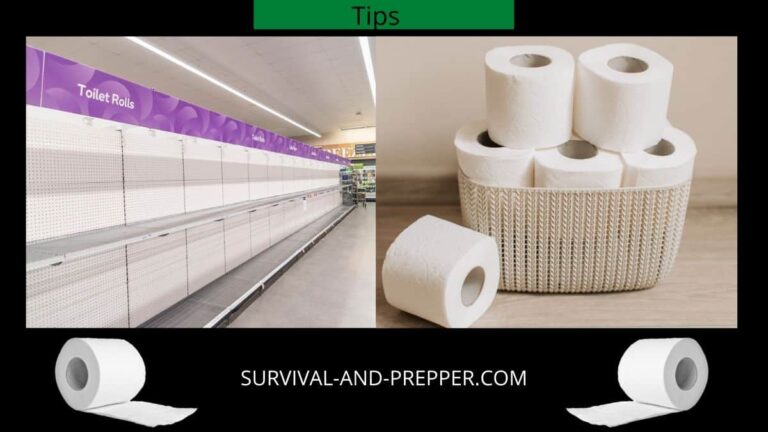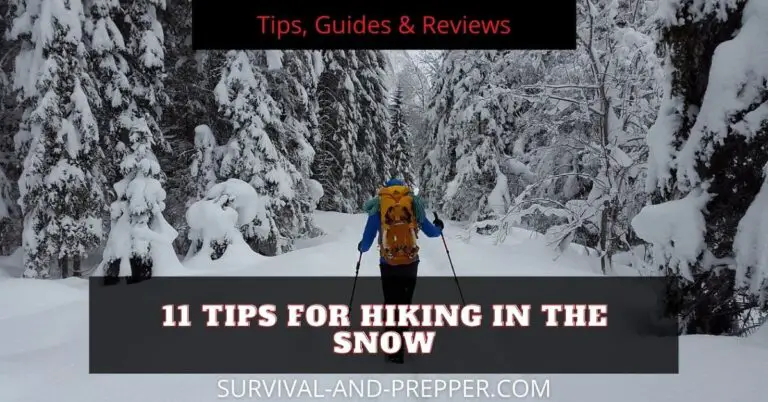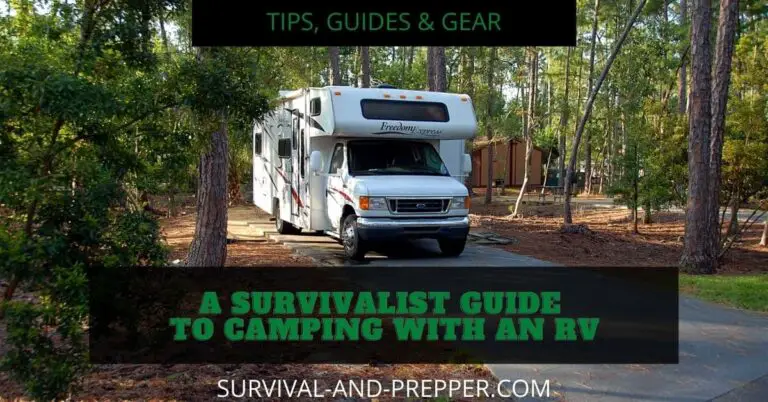What should you do first in a SHTF scenario?
I see many posts, articles, and suggestions that the very first thing you should do in a survivalist or SHTF scenario is to find shelter. While in some circumstances that could be true, you want to make sure your immediate situation is safe. By immediate I mean the next few minutes to a few hours depending on the circumstance. Once you are certain you are free from immediate danger then you need to begin asking yourself what should you do first in a SHTF.
The decision on what to do first.
Start by considering the actual situation and ask yourselves these questions.
What is the cause of this situation, disaster?
Is this critical incident going to be long term?
What is the span of this situation?
Should I bug out, or bug in?
Are the plans I have in place sufficient to meet this scenario?
Should I come up with a new plan?
What will I need to accomplish this new plan?
Finally, what should you do first in a SHTF situation?
Begin your analysis.
Breaking these questions down, we will discuss why they are important and how they affect your future. Keep in mind that this whole process should only take a few minutes at most to reach the last question and begin your plan of action.
What is the cause of this situation?
What does the particular SHTF situation consist of? Are you dealing with a riot; a natural disaster such as a tornado, hurricane, or blizzard; a biological incident such as the recent coronavirus outbreak? On the other hand, is it some other issues beyond these? Perhaps there has been a failure in the power grid, the government has collapsed, or you find yourself the lone survivor of a plane crash in the middle of the Rocky Mountains.
Each of these scenarios would have vastly different needs and methods to deal with them.
Is this incident going to have long-term effects?
The next thing to ask your self is how long you think you will be affected by this incident. Are you dealing with civil unrest, which will likely be over in a few days, a tornado, which could be over in a few hours, or some other situation, which lasts far longer, possibly even years?
By determining the answer to this question, it will help you formulate responses to the next ones on the list as well as help you begin considering which additional items you may need to acquire if possible. For instance there is no need to have seeds if the event is only likely to last a few weeks or even a few months, however at the point that we start dealing with a half year or longer then growing your own food becomes a more realistic need.
What is the span or reach of this situation?
This question helps determine how widespread the situation is or may become. For instance, while extremely devastating hurricanes tend to unleash most of their damage on the coast. It could be feasible to travel inland and away from the disaster. A civil unrest incident in a major city would likely not affect those rural areas that are located further away from the city. If this is a case of you being stranded in the wilderness from say a plane crash or similar incident then reaching civilization would be the span.
By determining the answer to this question, you will be able to decide if you stand a chance to reach the edge of the situation and thus be free of its effects.
Should I bug out, or bug in.
By this point in your questions you should have an idea of what you are dealing with, how long it will likely last and how far reaching its effects are. Now you can begin to formulate your plan on how you will react. Obviously many people reading this have already made preparations and have stockpiles as well as bug out bags and alternate plans in place. Consider what you have in each version of your plans, as well as the potential threats from both staying in place and bugging out.
If you are facing a hurricane that has already hit and your shelter remained intact then bugging in is a valid choice. If you live in a major metro area and it seems likely there are going to be riots and burning buildings etc then perhaps it is safer to bug out. At the same time, you may decide it is safer to bug out under cover of darkness so you hole up until then. Remember it is important to consider both the long-term effects as well as the immediate danger posed by each of these options.
What plans do I already have in place for this situation?
Now that you have sorted out what is actually going on you can evaluate the plans you made up to this point. As a Prepper, you have obviously prepared for various situations. Is this one of them, given the circumstances can I follow that plan and keep myself and or my family safe?
This step helps you assess your supplies and apply them to your current situation. By doing so you become one-step closer to formulating your final plan. I have heard it said that we cannot figure out where we are going without knowing where we are; and that applies at this time.
Are the plans I have in place sufficient to meet this scenario?
Ok so now you have assessed your situation and your current plans and stockpiles. Is your current path feasible or are you seeing things that you failed to address initially? For instance, your original plan involved you bugging out to your backwoods cabin in the mountains, however you cannot do that now as your car was stolen by looters. You know you have two months of food and plenty of supplies to defend your current location so you could stay put here. It is likely the authorities will regain control by then but if not will, you have enough food to last longer or the means to obtain more.
Should I come up with a new plan?
Once you know where you stand as far as supplies and how effective your plan is likely to be you need to decide if your comfortable with that route or if you need to develop a new plan at this time.
You originally planned to bug out into the mountains; however due to a recent blizzard your remote area is not accessible and so you don’t have any access to your primary food stores. Do you risk going anyway and hoping to get close enough to walk in? Or do you decide to come up with another option with plans to move to the remote location once the weather clears? This would be the time to make this decision.
What will I need to accomplish either my original plan or this new plan?
Now you have determined what you face, how long it is likely to last and a plan on how you are going to deal with it. Are the supplies you have in place going to enable you to enact this plan or do you need some other equipment you did not plan on. For instance in the above example maybe you can obtain a snow mobile and access your primary bug out location that way. Perhaps you just need to obtain some more food and remain where you are. Maybe you need to move to an entirely new location this is the time to sort those last details.
Free Hybeam Aircraft Aluminum Flashlight
Finally, What should you do first in a SHTF
Ok so everything is decided. Now you can answer what should you do first in a SHTF scenario. I frequently see numerous articles etc stating that the very first thing you should do in a survival situation is obtain shelter. While that may be the case in some instances, it is not the case in every instance.
Perhaps you have decided that bugging out is your best option and you are going to be traveling an extended distance. You would not want to waste either the time or energy building an elaborate shelter system. Perhaps your plan involves you driving several states away. You know there is gas in your area but is there anymore along the way so perhaps your first step is obtaining extra fuel.
Maybe it is obtaining extra food or going to pick up a friend to provide extra gear and defense. Maybe it is as simple as returning home and double-checking your supplies. Either way at this point, you have accessed the situation, broken it down into pieces you can handle and have a plan in place. By taking these steps you will be in a much calmer state of mind and able to make sure the actions you take are going to ensure your well being and survival versus simply going into a panic as many others do when encountered with a SHTF situation.
Now you know what should you do first in a SHTF situation and you can better prepare for what ever comes your way. Stay safe and stay ready.
